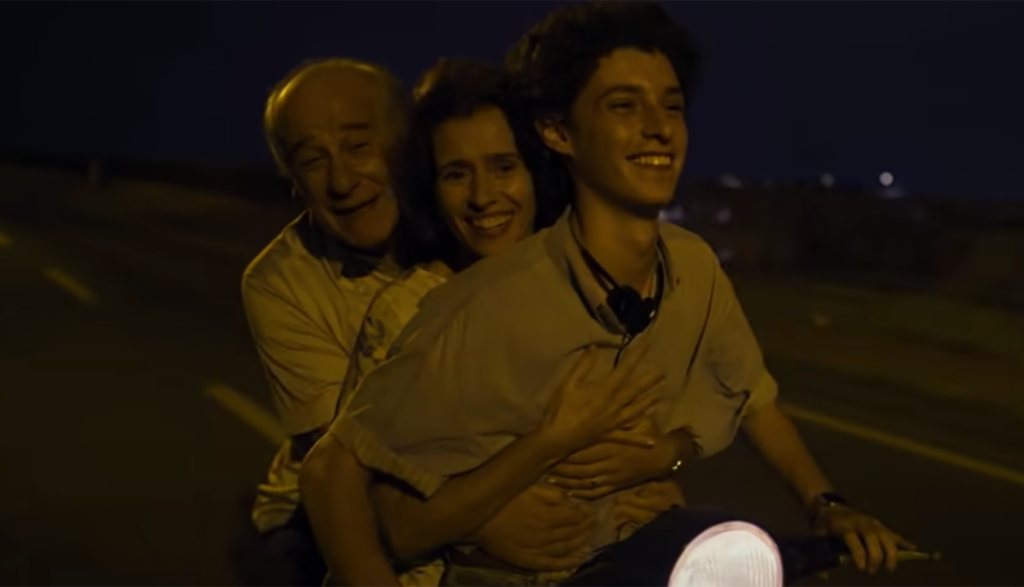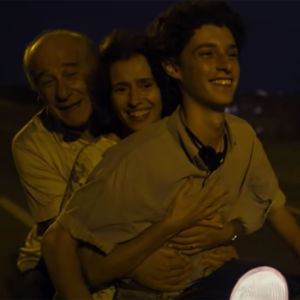Overview
- 0.1 The Hand of God – She arrived home to find her husband accusing her of prostitution and assaulting her physically.
- 0.2 The Hand of God – We were watching the Shiza family eat a drab outside lunch with filthy aunts, uncles, cousins, and matriarchs.
- 1 The Hand of God – This film is superior to most films on movie life:
The Hand of God Review: Sorentino in Naples is evocative of New Orleans, where it was first served. A charming coastal town with a spooky, old-world vibe. The first character we meet is Patricia (Louisa Ranieri).
Perhaps because she is meant to be the young hero’s motivation and the source of his sexual awakening. He was standing in the street when he was approached by an elderly man who recognised him despite the fact that he didn’t recognise him.
He drove her to a dusty, abandoned house in an ancient automobile. He sees someone/something known as a “small monk” in the midst of a massive shattered chandelier. And he is moved by an elderly guy who claims he is unable to have children.
The Hand of God – She arrived home to find her husband accusing her of prostitution and assaulting her physically.
Patricia is Fabio Schiza’s mother’s sister (Filippo Scotti). Fabio rides his scooter through the dark streets, hugging the backs of Saviero (Tony Servillo) and Maria (Teresa Sapongelo).
They’d come to console and placate Patricia, whose previous outbursts had made her question her sanity; Fabio couldn’t keep his gaze away from his aunt’s stunning naked breasts.
Fabio will recall the moments when he was riding his scooter. Later in The Hand of God, his aunt’s beauty and misery. Because he didn’t know yet, they grew more critical, but his maturity began there.
The Hand of God – Sorrentino portrays the life of young Fabieto as follows: In Napolitano, the Schiza family lives in a bourgeois apartment. The Napoli football team was a favourite of Fabio’s and his father’s.
And could only wish for Diego Maradona to play for them one day. Saviero works at a huge metropolitan office and is a kind guy. And he might not be completely honest in his marriage.
Maria is a pleasant and clever mother who can brilliantly juggle oranges. And he has a habit of cracking bad jokes with his friends and family.
Marcino (Marlon Joubert), Fabio’s older brother and an ambitious actor, shares a bedroom with Fabio. Marcino was the one who broke the ice for his aunt Patricia’s attractiveness.
Daniela, his younger sister, is always in the bathroom and is seldom seen. That putting the names of the actresses she plays in brackets seems superfluous.
Your upstairs neighbour, Betty Padrozi, the widow of a “renowned gynaecologist,” gave out some mystical vibrations, not in a bad manner, but in a mystery one.
The Hand of God – We were watching the Shiza family eat a drab outside lunch with filthy aunts, uncles, cousins, and matriarchs.
They boarded a bay boat, swam, and emerged to discover Patricia sunbathing without a seam; he summoned Fabio to get him a towel. While auditioning for one of the 4,000 extras in Fellini’s film, Fabio exchanged notes with Marcino; Fabio then watches in astonishment as the director, known as Capuano (Ciro Capano), pulls off astonishing feats on the road for his film.
Fabieto remarked that if his mother asked him what he wants to do once he finishes school, he might go into philosophy, which is a branch of filmmaking.
He and his father were overjoyed when the unthinkable rumours about Maradona joining Napoli came true – a truly incredible feat. Daniela hasn’t come out of the restroom yet. Did you know that at the age of 16, Sorrentino was orphaned? That’s correct. Unfortunately, this is correct.
The Hand of God – Sorrentino’s approach is best defined as cinematic praise; his confidence as a visual narrator is constantly on show, and his compositions and ideas have a controlled aggressiveness to them. It’s worth noting that God’s hand was formed more by suffering and love – for the family, for Naples – than by ego.
That fact obscures some of The Hand of God flaws: that it’s a Fellini cult, that it’s yet another adoration of cinema’s power (things like that peaked with Shape of Water and may have reached rock bottom with Mank, which is wonderful, but why should I be concerned?).
The Hand of God – This film is superior to most films on movie life:
The Hand of God – The storey revolves around the birth of a film director. This is just one aspect of Sorrentino’s narrative, which employs sport, food, s*x, joy, violence, and sorrow as structural elements of a young boy’s existence in Napolitano, brought to life with comedy, misery, and a surrealist explosion of humour.

Fabio makes friends with a cigarette smuggler, borrows Once Upon a Time in America on VHS, and battles bats in the baroness’s residence.
He sees the world’s wealthiest man pass by, his high school love at the theatre, and hugs his brother. He shouts at his sister through the bathroom door, allowing light to shine on the enormous screen, which reflects on his face as he debates Capuano.
Dealing with leaking family secrets, losing his virginity, and strolling the streets of Naples, recalling the beautiful moment his parents held to behind him. From the back of the scooter.
They all ended up leaping into the water and swimming and getting wet, and perhaps Fabio wasn’t quite ready to do the same.
The Hand of God is a fearless, fearless, energetic, and beautiful film that transports us into its universe, which Sorrentino has brought to life with all of his over-the-top charms.
This is a depiction of a filmmaker who uses a steady hand to present a tale over which he has no control. This is a battle, and the fact is that this is art.
